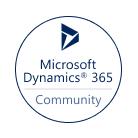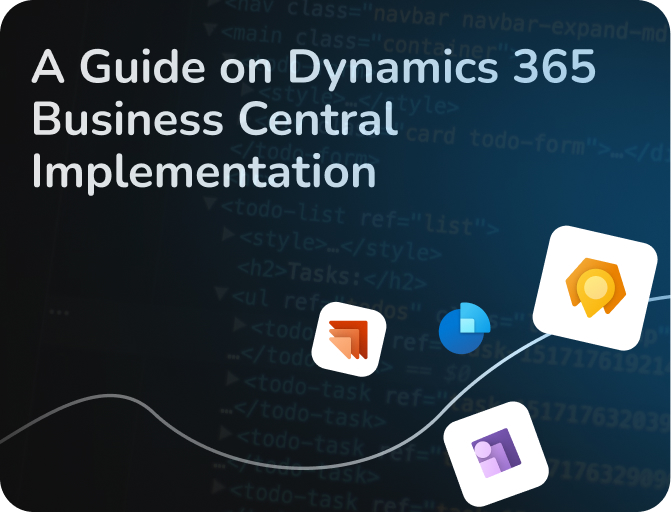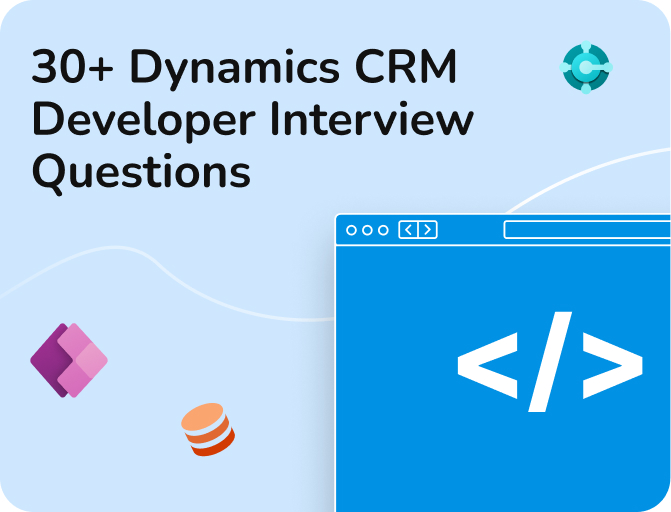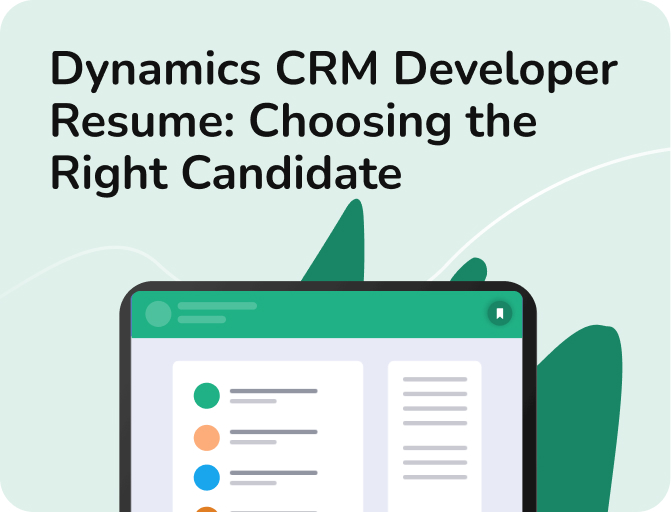- Our Models
- ServicesHesitant in service?
Get in touch with us with your business problem and we’ll consult you on the suitable service solution.
- SolutionsApplicationsLegacy SupportOther Microsoft SolutionsPower Platform ConsultantsAzure ConsultantsAzure Developers
- Industries
- Our Company
 About Us
About UsLearn more about our HireDynamicsDevelopers portal and the team behind it.
Case StudiesRead successful stories from our clients across various industries.
ServicesFind the right service according to your specific business needs.

- Resources
- Our Models
- ServicesHesitant in service?
Get in touch with us with your business problem and we’ll consult you on the suitable service solution.
- SolutionsApplicationsLegacy SupportOther Microsoft SolutionsPower Platform ConsultantsAzure ConsultantsAzure Developers
- Industries
- Our Company
 About Us
About UsLearn more about our HireDynamicsDevelopers portal and the team behind it.
Case StudiesRead successful stories from our clients across various industries.
ServicesFind the right service according to your specific business needs.

- Resources
Microsoft Dynamics CRM vs Salesforce – What Is Your Best Platform
Updated: December 17th, 2024 by Ivan Farafonov
Microsoft Dynamics 365 and Salesforce are the most veritable software products on the CRM solar system. MS Dynamics is backed by a multinational tech company, which is currently listed as the fourth most valuable company globally. On the other hand, Salesforce was recently voted as Fortune 100 best company to work for and has the bragging rights of being housed in one of the tallest buildings in San Francisco. Which platform is the leader in the battle between Microsoft Dynamics CRM vs Salesforce? Let’s look at all the details and determine the best option for your needs.
Both CRM vendors are famed for offering ‘legacy’ software products, with the first version of Microsoft making its debut in 2001, while the latter got its start back in 1999.
According to recent reports, Salesforce holds a commanding market share of 23%, making it the leading CRM provider globally. On the other hand, Over the projection period, demand for solutions is expected to rise at a 12.2% CAGR.
Aside from the differences in market share, these two CRMS look fairly similar. For starters, they both offer a comprehensive suite with multiple work tools, have paid add-ons, and come with flexible pricing plans, allowing users to customize the platform’s functionality to meet their distinct business needs. For these reasons, it can be hard for business owners to determine the best platform between Dynamics 365 CRM vs Salesforce CRM.
In the ultimate Microsoft Dynamics CRM Salesforce comparison, a key aspect to consider is the implementation and customization process and how it aligns with your business requirements and infrastructure. Read more about ways to search for experienced CRM Dynamics consultant!
Microsoft Dynamics 365 vs Salesforce
The two biggest differences between platforms come in the form of how they are deployed. Salesforce is specifically designed and built for the cloud, while D365 allows you to choose from three major deployment options including cloud, on-premise, and partner-hosted
The Salesforce vs Dynamics comparison is in the table below:
Microsoft Dynamics 365 Features | Salesforce Features | |
|---|---|---|
Salesforce vs Microsoft Dynamics pricing | Single Module – $80+ Sales for Enterprise-$115 ERP Only- $231All Modules-$255 | Essential plan – $25 per user, per month. Billed annually. Professional plan-$80per user, per month. Billed annually. Enterprise plan- $165 per user, per month. Billed annually. Unlimited plan- $330 per user, per month. Billed annually. Einstein 1 Sales - $500. |
Hosting | Cloud On-premise Partner-hosted | Cloud |
Ease of Use | 3.9 out of 5 average user ratings | 4.1 out of 5 average user ratings |
User Accessibility | D365 offers three major hosting options, including cloud, on-premise solutions, and partner-hosted, which gives it a wider scope of reach.UI is largely browser-based. Provide a search bar for more seamless navigation. | Strictly cloud-based making it easy to access with hand-held devices. Simple UI with separate links to click on for quick identification. |
Customer Service | For the standard package, you get unlimited access to support groups, the MS Dynamic community, and technical resources on subscription. | Salesforce also offers unlimited access to technical resources, support groups, direct interaction directly with other customers, guided online training, and self-service portals. The second plan offers 24-hour support, and available at an extra 20% of your net subscription cost.The last plan is the ‘Premier Plus,’ and is available at 30% of your net subscription cost. |
Unique capabilities | Easily integrate with other MS software. AI functionality enabled. | Hosts an app exchange marketplace, which improves its core functionality as well as makes it easier to locate third-party applications. Einstein AI functionality enabled, which helps predict the company’s selling habits and suggest improvements. |
Integrations and elasticity | In the past few years, AppSource has continued to heavily invest in the connectivity of apps and is slowly gaining ground in market. The larger MS Dynamics 365 platform also comes with PowerApps and Power BI, all of which allow you to turn your data and connections into customized apps. | Generally, Salesforce is seen to have an upper hand over Dynamics when it comes to building or customizing your CRM for use in specific sectors and industries. The platform features over 2,600 apps in the AppExchange, making it one of the largest catalog. Salesforce also offers built-in connected platforms and partner programs, which helps your business and in-house development teams customize the CRM. |
In case you’re searching for SL development, consider our Dynamics staffing company company and find your ideal candidate!
Request a consultation to choose Dynamics vs Salesforce!
Salesforce vs. Dynamics 365 Pros and Cons
From the above features, it is easy to understand why Microsoft Dynamics CRM vs Salesforce CRM are the two most reputable CRM brands in the global software market. While Dynamics is better-known for both consumer and business software, Salesforce is largely a CRM purist.
Indeed, Salesforce is synonymous with CRM software, and it has grown to become the leader in the CRM field. But, that doesn’t mean that MS has been an also-ran. In reality, D365 has a few tricks up its sleeves that play to its advantage. For example, if you are already using other tools, Microsoft 365 easily integrates with other software, which could end up saving you a lot.
Let’s take a look in a little more depth at the advantages and disadvantages of each of these two CRM providers to choose Salesforce vs Dynamics 365.
Microsoft Dynamics CRM
Pros | Cons |
|---|---|
Low CRM costs and flexible licensing model make it a cost-effective CRM that is accessible for small and medium enterprises. | Dynamics 365 for Sales offers limited marketing automation capabilities and lacks a full-blown purpose-built marketing model. |
D365 comes with a native LinkedIn integration, which makes it easier for your CRM to identify leads on the platform and build a personalized Relationship Sales platform. | D365 is still very new, having only been released in late 2016. Although it is growing in popularity, some businesses are still wary of investing in such a green product. |
Service Level Agreement commits up to 99.9% uptime, translating to fewer disruptions. |
Salesforce CRM
Pros | Cons |
|---|---|
Salesforce has one of the biggest catalogs of apps in its AppExchange, which is why it has grown to become the biggest B2B store in the CRM industry. As a result, businesses can squeeze out more benefits from the platform. | While many integrations are pre-packaged, custom integrations can also be necessary. They cause additional complexity and expense, including the need for specialized development, potential maintenance, and troubleshooting. This can lead to higher costs, which should be considered when planning your Salesforce ecosystem. |
Unlike CRM solutions that require you to work with a partner to get the right knowledge and training, Salesforce provides a learning platform called Trailhead. It is free and allows users to gain experience with the system. | Salesforce spiking costs and a long string of contractual obligations may outprice some small and medium enterprises. |
Salesforce has an excellent and seamless mobile CRM functionality, which allows businesses to conversely track opportunities in real-time using mobile devices. | Salesforce Field Service Lightning users have reported several inefficiencies. These include the complexity and time-consuming nature of setting up the software, with some users still encountering bugs even after six months of use. Additionally, customization options in SFS often require reliance on external solutions or additional Salesforce services, which can complicate deployment and increase costs. |
Unlike the module, Pardot services and Marketing Cloud are designed to plug and play, while eliminating the steep learning curve. | SLA is only available upon request and you must negotiate to get it. This may give the impression that the company isn’t fully committed to ensuring that the platform works without downtimes. |
Salesforce offers a wide range of robust e-commerce facilities that are easily scalable to meet future demands. |
Salesforce CRM VS Microsoft Dynamics – Which CRM Solution Should You Choose?
Clearly, neither of the two CRM tools is a bad choice to adopt for your business. This is because they are the leading CRM tools on the market. To answer the question, which is best? The answer boils down to the specific business needs, size of the company, and the existing CRM setup. This information helps you to choose Dynamics vs Salesforce.
Criteria | Salesforce | Microsoft Dynamics |
|---|---|---|
Specific Business Needs | Ideal for sales-focused businesses with strong needs for customer relationship management and lead tracking | Best for companies needing a comprehensive ERP and CRM solution that integrates well with other products |
Size of the Company | It may be too pricey for Startups, as license for 1 user costs 150$ for basic functions. Moreover, it can be bought in packages only. | Great for small to large enterprises due to its extensive functionality. |
Existing CRM Setup | Excellent choice for companies starting fresh with CRM or looking to transition from another CRM. It is also flexible and integrative due to Mulesoft. | Great for organizations already using other products and looking for seamless integration |
Customization and Flexibility | Highly customizable in higher-tier packages; lower-tier packages less flexible | Extensive customization options available across all tiers |
Cost Efficiency | Lower starting cost, ideal for smaller budgets (Essentials plan: $25/user/month) | Higher starting costs but offers a comprehensive suite (Basic module: $80/user/month) |
Both Microsoft Dynamics versus Salesforce offer comprehensive features that cater to diverse business requirements. But to ensure that your solution is a perfect fit for your complex workflows and specific business processes, the right decision is to engage the expertise of an experienced professional. An MS Dynamics CRM developer can significantly enhance the utility for businesses requiring deep integration and customization.
Dynamics 365 & Salesforce Integration: Choose the Benefits of Both
Still can’t decide between Salesforce vs Microsoft Dynamics CRM integration? With Microsoft Dynamics Salesforce integration, you get the best features from both systems. These two powerful platforms can work together to boost productivity, improve customer service, and optimize operations.
Benefits of Integration:
- By integrating D365 and Salesforce, you get a unified view of your customer data. This way, you see all interactions and transactions in one place.
- You track performance metrics, sales trends, and customer behavior more effectively.
- With integrated platforms, your customer service team accesses complete customer profiles, including sales and service histories.
- You may use robust CRM tools alongside Dynamics 365’s ERP capabilities.
- You can automate the process of updating customer information or generating invoices, saving time and reducing errors.
We have the resources to help you achieve this integration. Our team includes experts in both systems. We can provide the necessary skills to ensure a smooth integration for your specific business needs. Whether you need developers, consultants, or support specialists, we can find the best professionals for you.
Are you looking to integrate Dynamics and Salesforce?
Get in touch with us to find your assistant!
Get Quality MS Dynamics CRM Solutions
Integrating Salesforce with Microsoft Dynamics CRM is a strategic decision for professional services organizations looking to improve customer interaction, optimize operations, and accelerate growth.
“The synergy of these two powerful platforms creates a strong foundation for managing client relationships, improving operational efficiency, and gaining valuable insights through advanced analytics,”
says 4X Certified Salesforce Developer and Administrator Dorian Sabitov in his Microsoft Dynamics Salesforce integration guide.
This connectivity facilitates scalability and customization, allowing firms to adapt and develop easily. Overall, the Salesforce and Dynamics integration is a game-changing endeavor that strengthens competitiveness and promotes long-term growth.
If you are looking to hire Microsoft Dynamics CRM developers to create customized CRM tools, we are ready to help you with this. We are a bespoke, dedicated Microsoft Dynamics development company that helps small and multinational companies build CRM tools that help increase profitability, manage resources effectively, and improve productivity and efficiency.
Outline
Tatyana S.
40 HOURS / WEEK
Anna G.
10 HOURS / WEEK
Helmut D.
10 HOURS / WEEK
Request Our Services
Contact us now, and our Microsoft Dynamics 365 consultants will help you narrow down your choice between Microsoft Dynamics CRM vs Salesforce!
Your Partner Recognized in Dynamics Community














